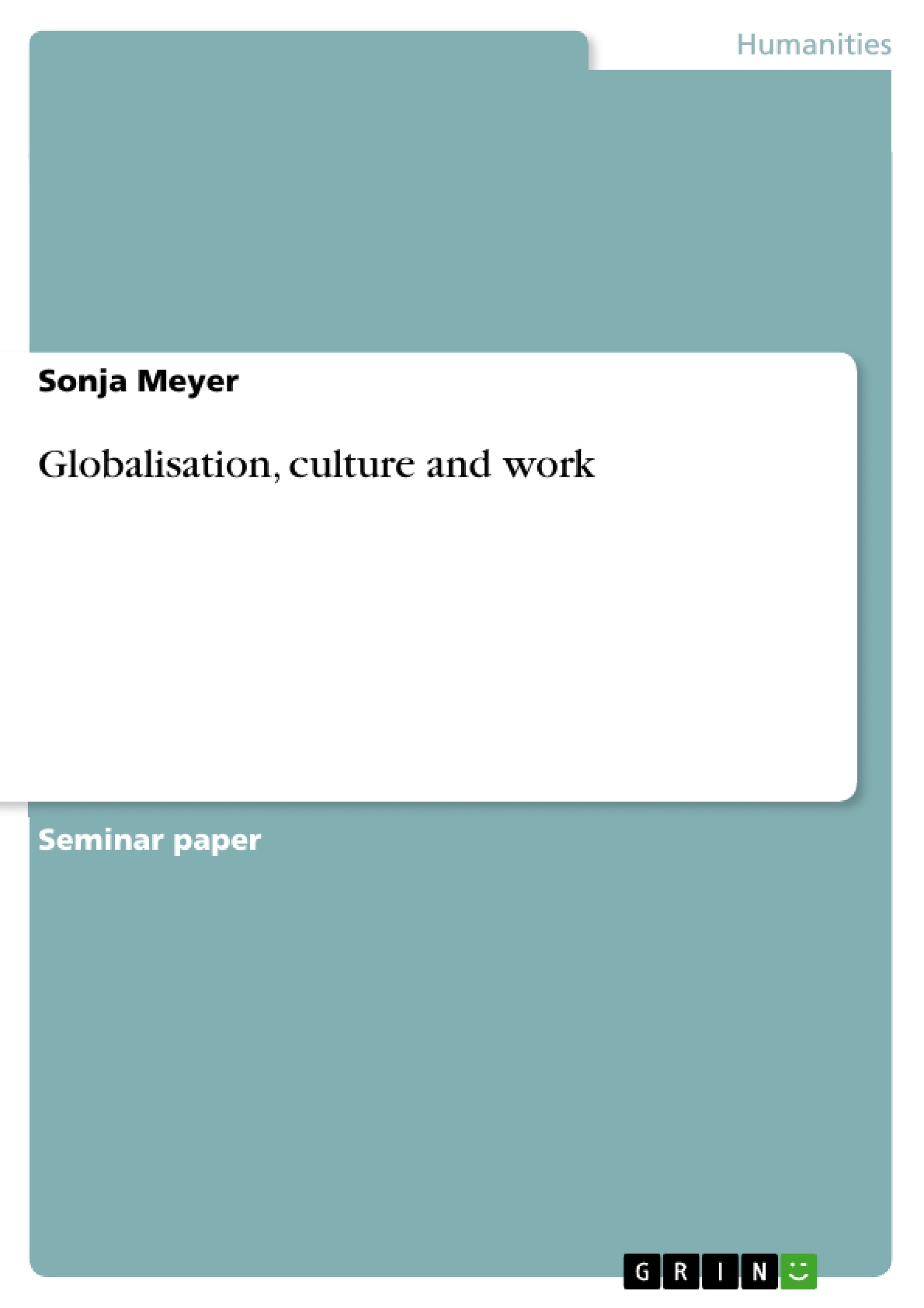As the cartoon above suggests, workers all around the world are situated at the bottom of the power spectrum in the international economic world. Globalisation is a catch-all term, that nowadays seems to be relevant to every field of social science. It affects every part of the world and of our every day lives. This is not to say that the locality of our lives does not play a role in how we experience the globalising forces. Rather it leads us to analyse what globalisation exactly is, how it has been conceptualised in the academic debate and how it changes conditions for every one of us. This paper will firstly address the general question of globalisation, outlining the controversy and the different approaches to developments that are subsumed under the term globalisation. To assess in how far people on the ground, in this case workers, are active agents, it is important to consider what changes globalisation brings about for their specific environment, in this case the international labour market. Finally, it should be shown that globalisation is not an independent force that dominates us all, but one that is actively created by humanity and in which every one of us takes a little part to a certain extent.
Table of Contents
- Introduction
- The ambivalence of Globalisation
- Effects on labour and identity – a global labour market?
- Workers - passive participants or active agents?
- Conclusion
Objectives and Key Themes
This paper explores the complexities of globalization, particularly its impact on labor and working cultures in a globalized world. The author examines the different interpretations of globalization, highlighting both the opportunities and challenges it presents for workers.
- The multifaceted nature of globalization, considering its economic, political, and cultural dimensions.
- The influence of globalization on the international labor market and its implications for workers' identities.
- The role of transnational corporations and their impact on labor conditions and working cultures.
- The interplay between global and local forces in shaping individual experiences of globalization.
- The agency of workers in navigating the complexities of a globalized world.
Chapter Summaries
- Introduction: This chapter sets the stage by introducing the concept of globalization and its relevance to labor and society. It highlights the significance of understanding globalization's impact on individuals, particularly workers, and sets the framework for the subsequent chapters.
- The ambivalence of Globalisation: This chapter delves into the multifaceted nature of globalization, exploring the different interpretations and perspectives on its impact. It discusses the economic, political, and cultural dimensions of globalization, highlighting both its positive and negative aspects. This chapter also examines the competing views of globalists and skeptics regarding the nature and extent of globalization.
- Effects on labour and identity – a global labour market?: This chapter focuses on the specific impacts of globalization on the international labor market. It examines the strategies employed by multinational corporations to maximize profit in a globalized world, highlighting the shift towards branding and lifestyle selling. The chapter also explores the implications of these strategies for workers' identities and working cultures.
Keywords
Globalization, labor, identity, transnational corporations, global labor market, working cultures, global vs. local, agency, international capitalism, time-space-compression, deterritorialization.
- Quote paper
- Sonja Meyer (Author), 2007, Globalisation, culture and work, Munich, GRIN Verlag, https://www.grin.com/document/116658




